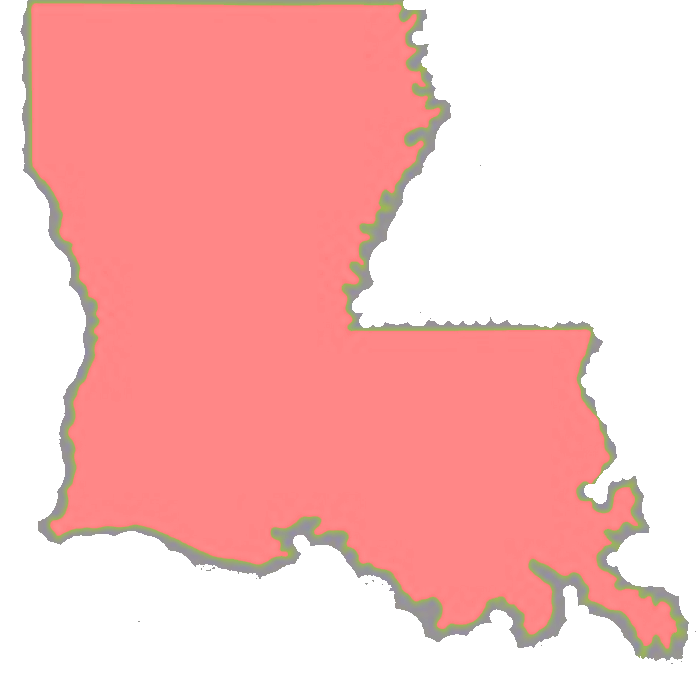Mobile Register
June 28, 1861
Page 1
The
Blockade of the Sound
A
passenger on the Oregon furnished the following interesting particulars which
we find in the N.O. Bee:
The
steamer Oregon, Captain Myers, which left early yesterday morning for Mobile,
returned at 9 o’clock last night, having had a narrow escape from capture or
destruction. About half past one
o’clock, P. M., with a strong southerly wind, the Oregon came in sight of a
large propeller war steamer, two masted, the foremast
square-rigged, and the mainmast fore and aft rigged. Capt. Myers determined to run by if possible,
and at all events to run the steamer ashore, land her passengers and then set
her on fire before allowing her to fall into the hands of the enemy. The only weapon aboard the Oregon was one
revolver belonging to a passenger. No
troops could be seen on Ship Island, nor was there any flag floating there.
In
going by the war steamer she fired two shots at he Oregon, both of which fell
astern. A schooner rigged tender to the
man-of-war had now hoisted sail and put after her. Running on some distance further, Capt. Myers
descried three more tenders, with launches full of armed men, inside of Deer
Island, and within one hundred yards of the channel. Finding that he could not run through, he
turned back, and had to run the gauntlet of the first named tender, which
chased him three miles, firing at him continually, but unsuccessfully. At length the tender gave up the chase in
despair, and the Oregon returned safely.
The
small sternwheel steamer Anna, Capt. Sarazin, from Pascagoula river, with lumber and passengers
for the New Basin, reported having been chased all morning by the tender, but
unsuccessfully. Capt. S. signalled the Oregon to turn back before the latter boat
reached the neighborhood of the United States steamer, but the signal was not
understood. The Anna got in safely last
night.
The
steamer Grey Cloud was at the wharf at Mississippi City, not having taken any
troops from thence in any direction. The
steamer Creole was at Ocean Springs. It
was thought she would attempt to run out last night in the darkness and make
either Mobile or Lake Pontchartrain. The steamer J. D. Swain was at Fort Wood,
with steam up. The California had
luckily been telegraphed on Saturday by Mr. Geddes
not to leave Mobile, on account of the lack of business. The enemy had evidently set a trap to catch
the mail line steamers coming each way, but they have failed in the attempt.
The
next day the small steamer Anna, Capt. J. E. Sarrazin,
with passengers and a cargo of rosin from Pascagoula river, arrived at New
Orleans, and her captain reported as follows to the Bee of Tuesday morning:
About
half past ten o’clock Sunday morning, while the Anna was steaming along in the
mail boat channel and abreast of Ship Island, Capt. Sarrazin
suddenly observed a large screw steamer, the one mentioned by us yesterday, and
probably an ocean steamship fitted up with a few heavy guns, and carrying a
large force of men with accompanying tenders, for the very purpose of
sustaining the effectual blockade of this sound. The United States steamer was making in the
same direction, but outside of Ship Island, and consequently Capt. Sarrazin did not alter his course until he saw the vessel,
which was running twice as fast as his craft, change her direction to run into
the sound halfway between Ship and Cat Islands, as if with the purpose of
cutting off the Anna. Seeing this Capt. Sarrazin altered his course in a corresponding manner,
making for Mississippi City in a diagonal direction with the main land.
The
U. S. steamer did not sufficiently allow for the shoal that extends from Cat
Island half way to Ship Island, and striking the end of it, she came to a stop,
probably from finding herself in shallow water.
Capt. Sarrazin saw her mistake and was
continuing on when he descried her tender, a schooner, putting off in a
diagonal direction, as if to intercept him.
He then made straight in for Biloxi a short distance, until the
schooner, reaching the mail boat channel, cast anchor. Again relieved from apprehension, he kept on
toward Mississippi City, close in to land.
Three
very long launches, containing forty to sixty men each, now put out from the
schooner to cut out the Anna, and Capt. Sarrazin
determined to run by them if possible.
In going past Mississippi City, within a quarter of a mile of the wharf,
the launches had got within two and a half or three miles of him. Half way to Pass Christian he met the steamer
J. D. Swain, with heavy ordnance and men for Ship Island, and warned them of
the position of the enemy. He then put
out in the direction of Pass Marian to notify several schooners there, near
which place he met the mail boat Oregon, and after whistling several times to
attract their attention and bring them to, he gave Capt. Myers the information
which caused him to be on the alert.
[Transcribed by Sharon Strout]





